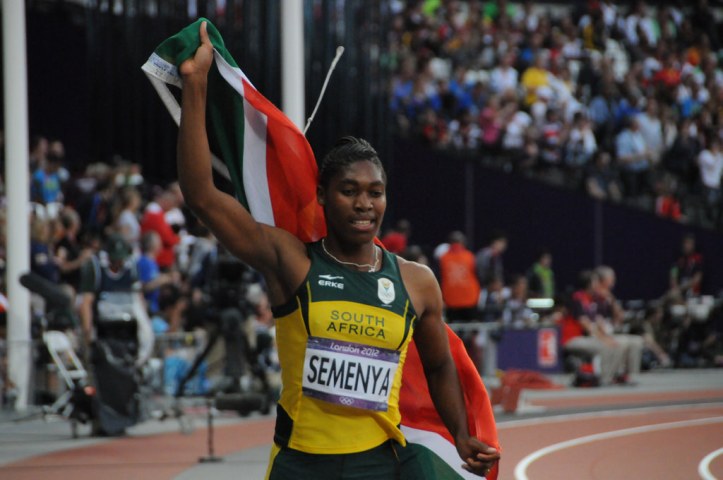SA Hails ECHR Ruling in Caster Semenya Case as Victory for Human Rights
The Grand Chamber of the ECHR, comprising 17 judges, upheld a 2023 ruling by the court’s lower chamber that Semenya was denied a fair and effective hearing by the Swiss Federal Tribunal.

- Country:
- South Africa
In a landmark development for gender justice in global sports, South Africa’s Minister of Sport, Arts and Culture, Gayton McKenzie, has hailed the European Court of Human Rights (ECHR) ruling in favour of Olympic champion Caster Semenya, calling it a moral victory and a pivotal moment in the fight for the dignity and bodily autonomy of female athletes.
The Grand Chamber of the ECHR, comprising 17 judges, upheld a 2023 ruling by the court’s lower chamber that Semenya was denied a fair and effective hearing by the Swiss Federal Tribunal. This was in the context of her legal challenge against regulations imposed by World Athletics that require female athletes with differences of sexual development (DSD) to artificially reduce their testosterone levels to compete in women’s track events.
By a 15–2 majority, the ECHR found that the Swiss judiciary failed to adequately protect Semenya’s rights, violating her access to justice under Article 6 of the European Convention on Human Rights.
A Seven-Year Battle for Dignity and Equality
Semenya’s case stems from a decision made in 2019 by the Court of Arbitration for Sport (CAS), which upheld World Athletics’ eligibility rules. These controversial rules require DSD athletes to medically lower their natural testosterone levels to compete in events ranging from 400 metres to one mile — a move Semenya has consistently refused, citing health risks and bodily autonomy.
After CAS dismissed her challenge, the matter was taken to the Swiss Supreme Court, which also ruled in favour of World Athletics. It was at this point that Semenya escalated her case to the ECHR, arguing that her human rights had been infringed, particularly her rights to privacy, bodily integrity, and non-discrimination.
The Grand Chamber’s ruling, while not directly overturning World Athletics’ regulations, recognized that Semenya was denied procedural fairness—a critical aspect that opens the door to renewed legal scrutiny and reinforces her right to be treated with dignity and respect.
Minister McKenzie: “We Will Walk This Journey With You”
Reacting to the ruling, Minister McKenzie expressed unwavering support for Semenya, affirming that South Africa stands firmly behind her and will continue to support her fight on every platform.
“Caster, we as South Africa have always stood by you, and we will continue to do so as the fight for your bodily rights continues,” said McKenzie. “Caster Semenya has become the face of defiance against injustice in global sport, and this court victory is a victory for every African child. South Africa is proud of her, and we will walk every step of this journey with you, Caster, until justice is not only seen, but felt.”
McKenzie also noted that the South African government has played a proactive role in supporting Semenya’s legal journey. The Department of Sport, Arts and Culture (DSAC), and previously the Department of Sport and Recreation, established a multi-sectoral support framework, drawing together legal, medical, and human rights experts.
From Legal Support to Global Advocacy
DSAC was instrumental in launching the #NaturallySuperior campaign, aimed at raising global awareness about the injustice of regulations targeting DSD athletes. The campaign sought to mobilize international solidarity and reframe the narrative around Semenya’s natural abilities as a source of pride, not controversy.
In addition to legal and financial support provided to Athletics South Africa, the department also worked closely with the Department of International Relations and Cooperation (DIRCO) to elevate the issue internationally. Their combined efforts culminated in a strong resolution at the United Nations Human Rights Council, which condemned the World Athletics regulations as a violation of:
-
Bodily integrity
-
Equality and non-discrimination
-
Freedom from cruel, inhuman, or degrading treatment
Next Steps: Pursuing Justice and Reform in Global Sport
Despite the ECHR’s latest ruling not overturning the DSD regulations, DSAC and its partners view the decision as a critical legal precedent that can be used to challenge discriminatory policies in international sports governance structures.
The department confirmed its intention to continue:
-
Collaborating with Athletics South Africa and legal teams.
-
Building alliances with African governments and sports federations.
-
Engaging with World Athletics and the International Olympic Committee (IOC) through formal diplomatic and legal channels.
“This is not the end. It is a new beginning. We will keep fighting until athletes like Caster Semenya are no longer asked to alter who they are just to compete,” said McKenzie.
The Minister concluded his remarks with a rallying message of hope:
“We can’t wait to see you running again.”
Broad Support Across Institutions
The Commission for Gender Equality (CGE) also issued a preliminary statement acknowledging the ruling. While the Commission is still studying the full judgment, it is expected to release a detailed position soon.
Human rights organisations, sports bodies, and gender equality advocates globally have welcomed the ruling, seeing it as a watershed moment for ethical standards in international athletics.
A Symbol of Global Resistance
Caster Semenya’s story has transcended the track, evolving into a global human rights issue. From being a two-time Olympic gold medallist to becoming a symbol of resilience against systemic discrimination, Semenya’s journey continues to inspire a generation of athletes and advocates fighting for inclusion, fairness, and bodily autonomy.
As the world reacts to the ECHR’s ruling, one thing is clear: the struggle for justice in sport has found a powerful voice in Caster Semenya—and her journey is far from over.
ALSO READ
Nepal Passes Historic Citizenship Bill: A Win for Gender Equality
UN Women at 15: Urges Bold Action to Reverse Setbacks in Gender Equality
‘The margins of the budget’: Gender equality in developing countries underfunded by $420 billion annually
Letsike Urges G20 to Turn Gender Equality Commitments Into Global Action
Empowering Workplaces: Judicial Insights on Gender Equality










